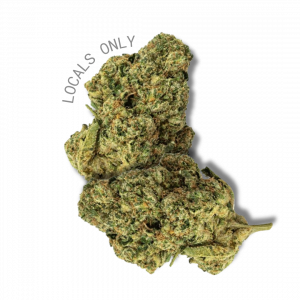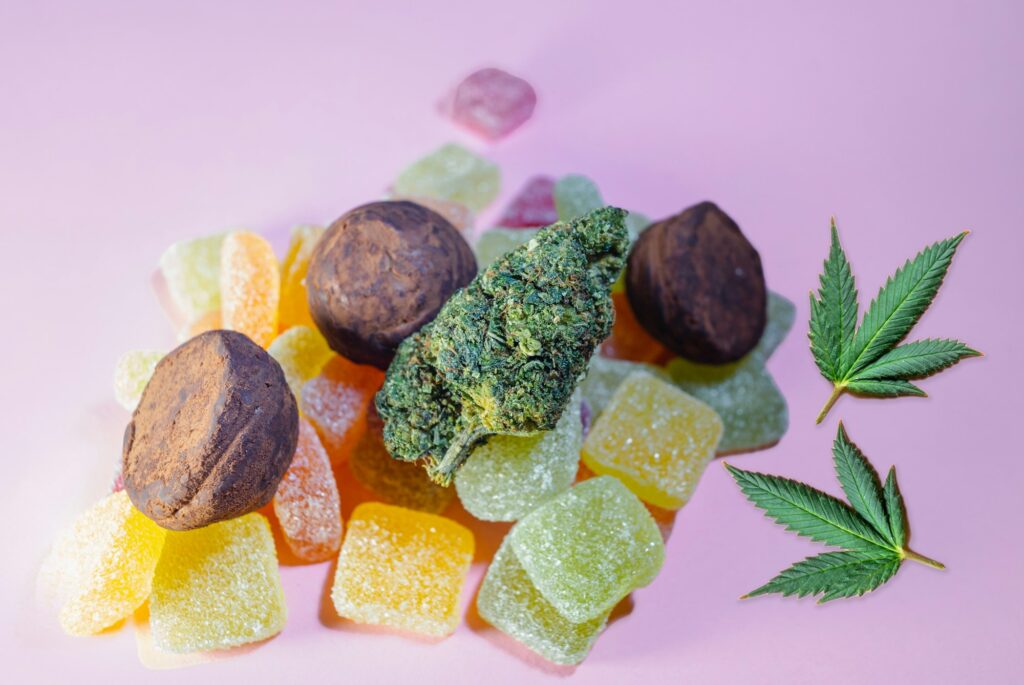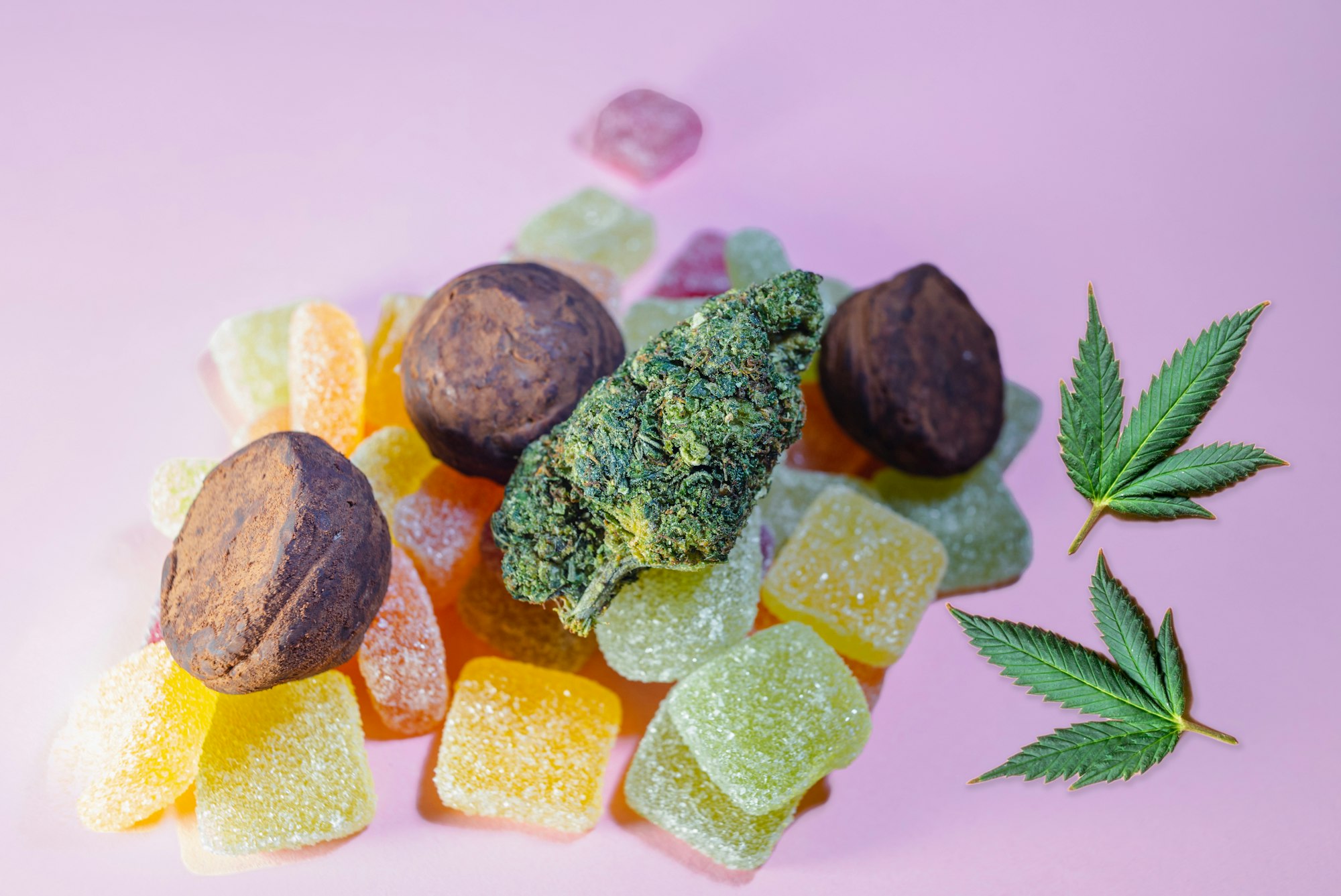


Cannabis edibles and concentrates have gained popularity as cannabis legalization expands for medical and recreational use. Edibles are food products infused with cannabis extracts, while concentrates are highly potent cannabis plant extracts consumed through methods like vaping or dabbing. These products offer alternatives to traditional smoking, providing more discreet and convenient consumption options.
Edibles come in various forms, including baked goods, candies, chocolates, and beverages, catering to diverse consumer preferences. Concentrates can be used in multiple ways, such as vaping, dabbing, or adding to food and drinks. The appeal of these products lies in their discretion and convenience, attracting a broader consumer base.
As interest in cannabis edibles and concentrates grows, it is crucial to understand the science behind these products, their potential health benefits, and associated risks. Safe consumption practices are essential for responsible use. Ongoing research and education are necessary to fully comprehend the impact and applications of these evolving cannabis products.
The extraction process involves using solvents to separate the cannabinoids and terpenes from the plant material. This step is crucial in creating high-quality extracts that can be used to make concentrates or infused into edibles.
The extracted cannabinoids and terpenes can be further processed to create concentrates with high levels of THC or CBD. On the other hand, cannabis-infused edibles are made by incorporating these extracts into food products through cooking or baking. The cannabinoids in these products are then absorbed through the digestive system, resulting in a slower onset of effects compared to smoking or vaping.
Understanding the science behind cannabis edibles and concentrates is crucial for consumers to make informed decisions about their use. By knowing how these products are created, consumers can better appreciate the complexity and nuances of cannabis products, and make more informed choices about their consumption.

Cannabis edibles and concentrates have been touted for their potential health benefits, particularly in the treatment of various medical conditions. For example, CBD, a non-psychoactive cannabinoid found in cannabis, has been shown to have anti-inflammatory, analgesic, and anti-anxiety properties. This makes it a promising option for individuals suffering from chronic pain, anxiety disorders, and inflammatory conditions.
Additionally, THC, the psychoactive component of cannabis, has been found to have pain-relieving and appetite-stimulating effects, making it beneficial for individuals undergoing chemotherapy or suffering from conditions such as HIV/AIDS. Furthermore, cannabis edibles and concentrates offer an alternative to smoking, which can be harmful to the respiratory system. The potential health benefits of cannabis edibles and concentrates are vast and varied.
CBD, a non-psychoactive cannabinoid found in cannabis, has been shown to have anti-inflammatory, analgesic, and anti-anxiety properties, making it a promising option for individuals suffering from chronic pain, anxiety disorders, and inflammatory conditions. Additionally, THC, the psychoactive component of cannabis, has been found to have pain-relieving and appetite-stimulating effects, making it beneficial for individuals undergoing chemotherapy or suffering from conditions such as HIV/AIDS. Furthermore, cannabis edibles and concentrates offer an alternative to smoking, which can be harmful to the respiratory system.
As research into the potential health benefits of these products continues to grow, it is important to consider their potential role in improving health and wellness.
| Category | Potential Risks and Side Effects |
|---|---|
| Psychological | Increased anxiety, paranoia, and panic attacks |
| Physical | Impaired coordination, dizziness, and increased heart rate |
| Respiratory | Respiratory issues from smoking or vaping cannabis concentrates |
| Dependency | Risk of developing cannabis use disorder |
| Overconsumption | Accidental ingestion of high doses leading to discomfort and impairment |
While cannabis edibles and concentrates offer potential health benefits, they also come with potential risks and side effects that consumers should be aware of. One of the main risks associated with edibles is overconsumption due to the delayed onset of effects. Since edibles are metabolized in the digestive system, it can take up to two hours for the effects to be felt, leading some individuals to consume more than intended.
This can result in unpleasant side effects such as anxiety, paranoia, and impaired coordination. On the other hand, concentrates are highly potent and can lead to tolerance buildup and dependence if used excessively. Additionally, both edibles and concentrates can pose risks when not produced or consumed responsibly, such as accidental ingestion by children or pets.
It is important for consumers to be aware of the potential risks and side effects associated with cannabis edibles and concentrates. One of the main risks associated with edibles is overconsumption due to the delayed onset of effects. Since edibles are metabolized in the digestive system, it can take up to two hours for the effects to be felt, leading some individuals to consume more than intended.
This can result in unpleasant side effects such as anxiety, paranoia, and impaired coordination. On the other hand, concentrates are highly potent and can lead to tolerance buildup and dependence if used excessively. Additionally, both edibles and concentrates can pose risks when not produced or consumed responsibly, such as accidental ingestion by children or pets.
Understanding these risks is crucial for consumers to make informed decisions about their use.
To minimize the potential risks associated with cannabis edibles and concentrates, it is important for consumers to practice safe consumption habits. When consuming edibles, it is recommended to start with a low dose and wait at least two hours before consuming more to avoid overconsumption. It is also important to store edibles in child-resistant packaging and keep them out of reach of children and pets.
When using concentrates, it is crucial to start with a small amount and gradually increase the dose as needed to avoid tolerance buildup and dependence. Additionally, consumers should purchase products from reputable sources that adhere to strict quality control standards to ensure safety and potency. Safe consumption practices for cannabis edibles and concentrates are essential for minimizing potential risks associated with their use.
When consuming edibles, it is recommended to start with a low dose and wait at least two hours before consuming more to avoid overconsumption. It is also important to store edibles in child-resistant packaging and keep them out of reach of children and pets. When using concentrates, it is crucial to start with a small amount and gradually increase the dose as needed to avoid tolerance buildup and dependence.
Additionally, consumers should purchase products from reputable sources that adhere to strict quality control standards to ensure safety and potency. By following these safe consumption practices, individuals can enjoy the potential benefits of cannabis edibles and concentrates while minimizing potential risks.

The legal status of cannabis edibles and concentrates varies by jurisdiction, with some regions allowing their sale for both medical and recreational use while others have stricter regulations in place. In many cases, regulations dictate factors such as potency limits, packaging requirements, labeling standards, and restrictions on advertising. Additionally, there may be specific requirements for production facilities to ensure product safety and quality control.
It is important for consumers to be aware of the legal status of these products in their area and adhere to any regulations in place to avoid legal consequences. Legal and regulatory considerations play a significant role in the availability and use of cannabis edibles and concentrates. The legal status of these products varies by jurisdiction, with some regions allowing their sale for both medical and recreational use while others have stricter regulations in place.
In many cases, regulations dictate factors such as potency limits, packaging requirements, labeling standards, and restrictions on advertising. Additionally, there may be specific requirements for production facilities to ensure product safety and quality control. It is important for consumers to be aware of the legal status of these products in their area and adhere to any regulations in place to avoid legal consequences.
As more research is conducted on the potential health benefits of cannabis edibles and concentrates, it is likely that these products will continue to play a significant role in health and wellness. With their potential to provide relief for various medical conditions such as chronic pain, anxiety disorders, and inflammatory conditions, these products offer an alternative treatment option for individuals seeking natural remedies. However, it is crucial for consumers to be aware of the potential risks associated with their use and practice safe consumption habits.
Additionally, legal and regulatory considerations will continue to shape the availability and use of these products in different regions. Overall, cannabis edibles and concentrates have the potential to make a positive impact on health and wellness when used responsibly and within legal boundaries. In conclusion, the future of cannabis edibles and concentrates in health and wellness looks promising as more research is conducted on their potential health benefits.
With their ability to provide relief for various medical conditions such as chronic pain, anxiety disorders, and inflammatory conditions, these products offer an alternative treatment option for individuals seeking natural remedies. However, it is crucial for consumers to be aware of the potential risks associated with their use and practice safe consumption habits. Additionally, legal and regulatory considerations will continue to shape the availability and use of these products in different regions.
Overall, cannabis edibles and concentrates have the potential to make a positive impact on health and wellness when used responsibly and within legal boundaries.
